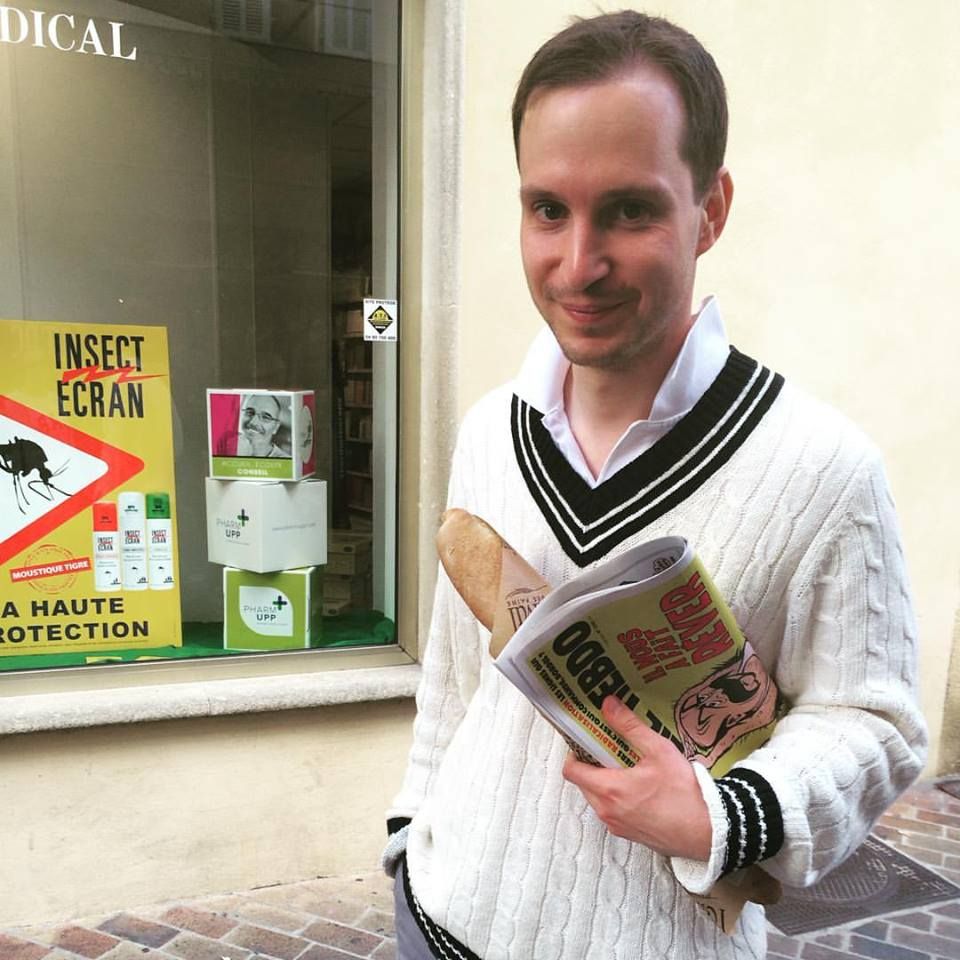Dalibor Roháč
Dalibor Roháč
|
Dalibor Roháč comes from Bratislava, Slovakia. He obtained his B.A. at the IES in 2005. Then he completed his M.A. in economics from George Mason University, USA and an M.Phil. in economics from St Antony’s College, University of Oxford. Later, in 2009 he received PhDr. at the IES. From 2011 to 2014 he was working on his PhD in political economy at King’s College, London. Dalibor Rohac is currently a research fellow at the American Enterprise Institute (AEI), where he studies European political and economic trends. Specifically, he is concentrates on Central and Eastern Europe, on the European Union (EU) and the eurozone, US-EU relations, and the post-Communist transitions and backsliding of countries in the former Soviet bloc. He is concurrently a visiting fellow at the Max Beloff Centre for the Study of Liberty at the University of Buckingham in the UK and a fellow at the Institute of Economic Affairs in London. Before joining AEI, Rohac was affiliated with the Cato Institute’s Center for Global Liberty and Prosperity, the London-based Legatum Institute as a Research Fellow and Deputy Director of Economic Studies, and as a Research Associate at the Center for the New Europe in Brussels. He also interned in the office of the president of the Czech Republic in Prague. Dalibor’s analyses and commentaries have been published widely in the media, including the Washington Post, New York Times, Financial Times, and Wall Street Journal. His scholarly articles have been featured in professional journals, among them Constitutional Political Economy, Economic Affairs, and the European Journal for the History of Economic Thought. Dalibor lives in the US with his Slovak wife, and in his free time he likes cooking and travelling. |
You studied at the IES, Oxford, George Mason University or King's College. What did you consider the most important at each school? Every school has certainly somehow shaped and influenced you...
Each of those university experiences shaped me in a slightly different way. Both the undergraduate degree at IES and the MPhil at Oxford were great at building and strengthening my technical toolbox. GMU and King's College (which is where I completed my PhD in political economy) were helpful in broadening my research horizons and encouraging me to cross disciplinary boundaries. But I have to say that throughout my studies abroad I was always drawing heavily on my undergraduate training from IES, which I think was at par with that offered by the world’s leading economics departments.
You work abroad in the academic sphere and in international think-tanks, does your personal experience from the Central and Eastern Europe help you?
Very much so. My interest in economics and social sciences was sparked by my experience of living through the fall of communism and the post-communist transitions in Central and Eastern Europe. While transitions are an interesting subject in their own right, I think that this personal experience should also make Czechs and Slovaks, as well as other people from the region, more sensitive to the dangers facing free and open societies today. Compared to our friends in the West, we have fewer reason to be complacent, because we saw unfree societies first hand. For all the troubles that our democracies and market economies face, things can be much worse, politically and economically, than they are today.
Dalibor, last year you published a book that is the conservative defense of the European Union, what is the main message of the book, did you come to any surprising conclusion?
As many people of my generation in this part of the world, I started my intellectual journey holding fairly strong Eurosceptic positions. After all, as an undergraduate student I was an avid reader of Václav Klaus, Milton Friedman, and English-speaking conservative press. However, over time I parted ways with Euroscepticism. I do not think the EU is perfect and to a large extent I stand by my earlier criticisms. At the same time, I have come to realize that, in spite of all its flaws, the European project has succeeded in delivering some crucial public goods – peace, prosperity, and democratic governance – which should not be taken for granted.
You work in the UK and the US. Do you feel the latest changes in US immigration policy in person? How do you look at this issue, especially with regard to the migration of skilled people, as a foreigner?
Regardless of who is president, US immigration officers can often appear quite intimidating. Personally, I have not experienced myself anything unusual since Donald Trump's election. However, I am aware that many others had a hard time getting through passport control at US airports, especially at the time when his ill-conceived travel bans (now struck down by courts) were being introduced.
As an economist, I see migration as a force for the good the world. Economists have shown that we could double global GDP by removing migration restrictions. For that reason I worry about the political appeal that immigration restrictions have gained in the United States and also in the UK. The Brexit vote, after all, was also driven by opposition to immigration from Eastern Europe – although the latter has been demonstrably a boon to UK economy and public finances!
What do you do in your free time? It looks like your job is your hobby...
Indeed, I very much enjoy my work, which combines punditry, public outreach, and also more serious research. Otherwise, I enjoy cooking (much to the relief my wife, also an IES graduate) and travel. I know I should probably take up a sport, but I’m just not very good at such things.








